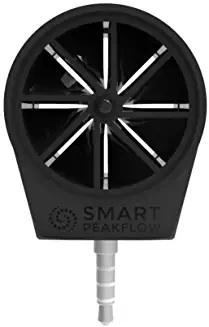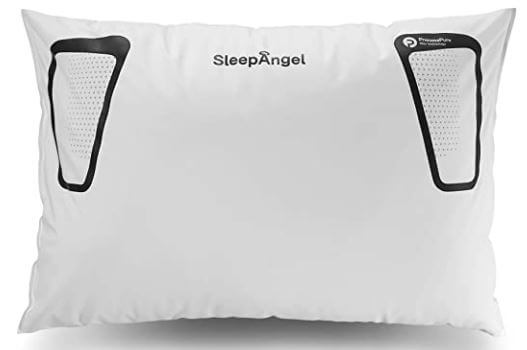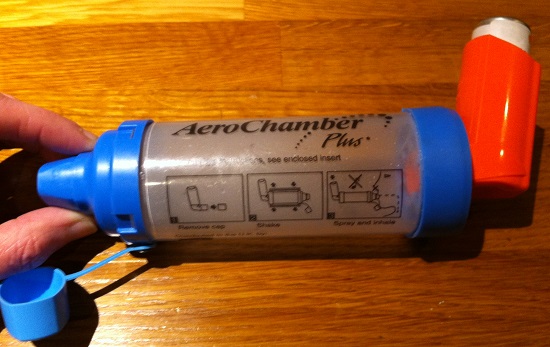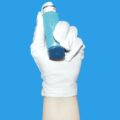I’ve had allergic asthma all my life and used both reliever and preventative inhalers regularly for YEARS. This blog is about my journey to living with asthma naturally and no longer using any asthma medication.
I’ve always worried about this continued use of steroids for asthma and whether they were bad for me, causing side effects etc. Naturally when I began topical steroid withdrawal I looked into whether this was going to hinder my progress because the preventative asthma inhaler contains a steroid drug. It was hard to find any advice that I really trusted so I continued to use both.
Asthma can be life threatening.
Every day 3 people in the UK die because of their asthma.
Asthma UK
“Asthma deaths in England and Wales were recorded at 1,320 in 2017 and 1,422 in 2018 giving us an increase of 7.7%. Asthma UK analysed asthma deaths data from the Office for National Statistics, Deaths registered in England and Wales 2018 .“
I believe many of these could be due to undiagnosed allergies, but I can’t substantiate this.
My asthma history
However during lockdown, purely by chance, the slower lifestyle and isolation, different pace of life, outlook, eating habits and daily routines, I realised I’d forgotten to use the preventative inhaler for months. I felt fine, so I kept on as I was, being very careful, avoiding my triggers and watching my peak flow.

I have a Smart Peak Flow device which was given to me free to review on Instagram. It links up to your phone and you can then easily track your readings, see peaks and troughs and monitor your asthma really quickly in the app. You can also share this with your medical professional so they have up to date information to see. You can buy a Smart Peak Flow unit on Amazon.
At my last asthma consultation I sought advice from my local asthma nurse who, whilst nervous to condone my choice of quitting the medication, admitted my peak flow was normal. She told me to keep an eye on it and get in touch if I needed to get back on the preventative inhalers. The other interesting advice I was given was to stop using the blue one before a run, as had been previously advised. Instead, I should take the inhaler with me and only use it as needed. I now find I rarely need the blue inhaler at all and actually couldn’t tell you the last time I used it.
I still get a little wheezy, I think caused by hay fever, dust and other triggers, but it seems to be very mild. A visit to a cafe can set me off on a wheeze attack due to air borne dairy particles, but this was still the case when I was using both reliever and preventer inhalers. Sitting outside and leaving cafes quickly when I get wheezy is a price I have to pay to stay safe .
Ban the bloody latte!
PUBLIC ANNOUNCEMENT
I’m not a doctor so would not for a moment suggest that anyone stop using their asthma medication. If you are using preventative inhalers and the blue relievers please continue to do so as directed by your doctor. If you are concerned please get an appointment with the asthma centre closest to you for a review.
Natural asthma treatments
Since not using my preventative inhaler I’ve been looking into how to ensure I remain drug free safely. Sometimes I do still get wheezy, on high pollen days and sometimes for no apparent reason that I can determine. Luckily these have been mild and I can manage it myself. Monitoring regularly by taking your peak flow is good practise so you can see any dips and deterioration. By far the best thing was one particular breathing technique that has helped so much and it got me thinking, what other research and things are out there that could help? What else am I missing?
- Buteyko breathing – Buteyko (pronounced Bu-tay-ko) is a breathing technique which can ‘improve asthma symptoms, quality of life and reduce bronchodilator (blue reliever inhaler) requirement in adults with asthma’. To do Buteyko breathing, breathe in normally, hold your breathe by covering your nose with your finger and thumb and keep your mouth closed. Hold for 10 seconds or as long as you can. Let your breathe out slowly when you need to, or after ten seconds and now breathe in and out normally ten times. Every time I do this I find it shifts mucous after only one try, and always by the second cycle. I used to feel like my chest was restricted and that the mucous was stuck, dry and wouldn’t move, leaving me sort of breath. This simple technique works every time I feel a little shortness of breath of wheezy. You can read more about this in my blog about the Buteyko Breathing technique for asthma
- Salt Therapy Inhaler – I’ve not used one of these before but a few of my contacts on Instagram have recommended them to me. I nearly bought one but at the moment I don’t have any asthma to test it on. Check out Saltair inhalers on Amazon.
- Reduce anxiety – This is key, for me there is a direct link between being anxious and itching and wheezing or shortness of breath. It’s not always easy to just do something like cut out stress or reduce anxiety as it’s not simple. But do you what makes you stressed and anxious? Can you control it in any way? or work to make thing better and reduce that burden on your immune system. I have had counselling and continue to work on the things that worry and upset me. I have loads of tools that I’ve learnt over the years and learning what’s not good for me is really helping. Learning to say no when you need to and look after yourself first will start to show a difference in your health. It’s all those little things like maintaining good sleep, healthy screen time, self care, nature and exercise. Don’t under estimate the effect of a busy lifestyle with no time to rest, recharge and rewire.
- Meditation – I’ve been learning to meditate now for a few years and I am by no means an expert. I don’t for a moment try to clear my mind or do anything clever, but what it does do for me is to help me slow my breathing down. So many of us are not learning to breathe properly. By taking just ten minutes out of my day to just sit and try to slow everything down I have noticed a huge difference in my mental health and my physical health. Learning to breath properly, deeply and plug into that part of your nervous system that helps you relax is something I think everyone should learn to do. Just try it for 30 seconds and you’ll notice a difference. Just sit with a straight back, feet planted firmly on the floor, try to relax your jaw, your tongue, your forehead and your shoulders and close your eyes and breath in deeply, hold your breath for few seconds and breath out slowly. There are loads of different breathing exercises so give it a go. It’s free, you can do it anywhere and I guarantee it will help. I have the Calm app and find that a guided meditation helps me to keep focus on the breath. If you would like a free month’s trial on Calm let me and I’ll send you a link.
- Vitamin C – Vitamin C is involved in the metabolism of histamine and prostaglandins, which are involved in bronchoconstriction so it’s a natural antihistamine. It certainly isn’t going to do you any harm because the body doesn’t store it if you take too much. So if you have allergic asthma it should definitely help. Obviously a diet rich in vitamin C will help but you can boost your intake, particularly when wheezy. Get Vitamin C powder or pure ascorbic acid from various places online.
- Magnesium – The reason this mineral can help is because it’s a natural bronchodilator which means it opens up the airways and also helps reduce inflammation. It’s even used by doctors in emergencies either intravenously or in a nebulizer. You can try Liquid Magnesium from Floradix.
- Learn your triggers – My asthma is triggered by a number of things including dust, latex, mould, pollen and grass, airborne dairy particles, some dog and cat dander, horses, other animals etc. Even when I was using all the medication these triggers would still cause asthma. The only way to really manage it is to avoid these triggers as best you can. Really keep an eye on when you get wheezy and what’s happening each time. Keep a diary so you can work out what’s happening. Ie. is it in the bath, in the garden, when at a particular friend’s house, time of year, season of pollen. It takes time to piece it all together but by understanding your body and what it reacts to you can live your life to avoid them as much as possible. So for instance, I always sit outside in some cafes, even in winter, because sitting inside makes me too wheezy.
- Detox your home – I’ve been doing this slowly now for a few years. As things run out I replace with a natural kinder solution. I’m talking about skin care, cleaning products, fragrances, everything. I love my new essential oil diffuser that helps me get calm and chilled for bedtime. I only use 100% pure essential oils now to fragrance my house, those plugin perfume things are awful, honestly really bad for your asthma and general health. Please everyone stop using them!
- Diet – Soya triggers an asthma attack for me, immediately. Could a food type be giving you problems too? Keep a food diary if you think this is the case and request allergy testing from you doctor.
- Dust mite and allergen bedding – This one is also really important if you have a dust allergy. I’ve used them in the past but am currently not as I find that if I stay somewhere else I really used to struggle. The mattress covers are quite a bother to fit, but if you have a serious dust allergy these could be a game changer. You can get Anti Allergen mattress and duvet covers from Allergy Best Buys. You’ll get 10% off if you sign up to their newsletter. They also do some lovely looking Bamboo bedlinen that I have my eye on!
- Pillows – I have got the SleepAngel anti allergen pillow which I really love and take everywhere with me when I go on holiday. It goes with a carry bag so you can easily transport it. It is the only allergen free and waterproof pillow on the market and nothing gets inside it. It’s special coating means you can wipe it clean if you need to a disinfect also so there is no need to machine wash either. Although who ever washes pillows? Or is that just me who’s never washed a pillow? Check out the SleepAngel pillow here. Of course there are lots of pillows that say they are hypoallergenic but I’m getting on really well with my SleepAngel pillow.
- Demystifying Atopic eczema and asthma course – I have just started a course to understand eczema better and some of these tips are from that. I will share a link when I have it so you can find out more too. If you’re interested contact Carolyne Akinyemi on Linkedin.
References and further reading
You may find the following resources useful:
- How to create an allergy friendly home
- Magnesium and Asthma on asthma.net
- Asthma and pathogenesis and novel drugs for treatment (the vitamin c link) from the British Medical Journal
Disclaimer: By using any of the Amazon links above a small amount will be paid to me from Amazon as commission. It costs me money every month just to host and maintain this blog so these links help me keep the blog going.
I do want to stress here I am not suggesting that anyone stops using their asthma medication. I am not a doctor, just a patient sharing their experience. Please make an appointment with your GP or local asthma clinic if you need help or advise about managing your asthma.
How is your asthma? Do you use a preventive inhaler? What do you do to help you manage your asthma?












Every time I breath in scents or chemicals for about 30 minutes to an hour I get bronchitis. Few years ago, I had bronchitis for nearly 4 months straight. Antibiotics didn’t get rid of it and I was having trouble just walking up a few steps because my breathing was so horrible. I had a friend suggest trying her salt therapy room. It was amazing, I went 3 or 4 times in one week for about 30 minutes and was finally getting relief. I now own a salt machine for my home.
I’m glad I found your blog. Most people don’t understand how a simple laundry detergent or perfume can literally almost kill some of us. I’ve had 3 sinus surgeries because of my severe allergies to both food, color dyes, chemical and natural scents. I also have to rinse my sinuses directly with a steroid so that it keeps the nasal polyps at bay. Unfortunately, due to almost 20 years of steroid use, I now have developed steroid induced cataracts in both eyes and I’m only in my early 30’s.
Sometimes you feel like you are the only person who has to hold their nose and breath just to run down the grocery isle to get the one non-fragrance, non-artificial dye laundry soap. Heaven help me if when I’m walking into a store and someone is standing there smoking. I really wish people would recognize that firstly since we all mostly take frequent showers that we don’t need all these strong smelling chemicals; secondly, I wish the ADA would recognize us chemical allergy sufferers more with regards to fragrance free work places being mandatory.
To my original point, the salt therapy is wonderful. I know I get a lot of relief from my allergies when I visit the beach, all that salt air seems to help be a purifier. I look forward to continuing to read your blog!
Perfume allergies are the worst. I am not allergic to perfume but i do find some fragrances instantly make me wheeze. It does need to be recognised so that we can have some places that are designated fragrance free, such as hospitals for one! I’m so glad that salt therapy works, and it’s certainly better if you can recover without drugs. Thanks so much for your comment.
Ruth, you address a very important concern for most asthma sufferers, “when can I stop this medication?” I’m actually going to feature your post on my own blog in the near future. It’s nice to have some references to use. My blog is http://www.TulsaAllergyNews.com.
Hi Lynn, please do share, and I look forward to reading your blog. Thanks so much for your comment. What is your experience with asthma?
I stumbled across a Youtube video in which a girl described how she had managed to cure herself of Asthma. As an Asthma sufferer I was interested and tried out what she had done and to my amazement it also cured me of my Asthma, in truth I was stunned and elated and it only took 7 days.
I was so happy that I have written my own post about what I did to get rid of this disease. Have a look for yourself it is super simple and completely free and everyone should do this, illness or not.
Please let me know how it help you!
WOW that is absolutely amazing! I’ve been thinking of the cold shower method of Wim Hoff but not quite started it yet. This is truly amazing! Thanks so much for sharing. My asthma has gone too which is a miracle. No idea what I did except stopping all medication which is definitely not advisable I’d say but seemed to work for me while I was safe at home and in hiding and isolation from Covid threat outside. I’m definitely going to give it a whirl. Thanks so much for sharing.
David Webb talked about a u tube video in which a girl cured herself from asthma. Do you have any idea which one this was?
thanks
Hi Rob, I will try to find it for you. I’ll bet there are many who have. I’m still working on it myself. These winter months are triggering for me and I’ve been a bit wheezy. How is your asthma?